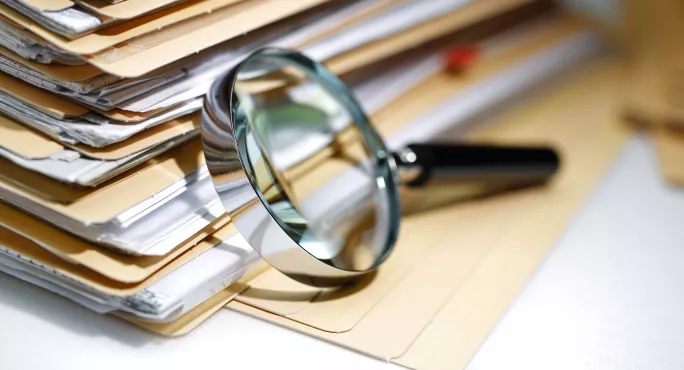
- Home
- Teaching & Learning
- Secondary
- GCSEs and A levels 2021: The assessment guidance so far
GCSEs and A levels 2021: The assessment guidance so far

Teacher-assessed grades will be used to award GCSEs, A levels and other qualifications, including EPQ (Extended Project Qualification), this year, but the guidance for schools has been slow to appear.
At the moment we have advice from the Joint Council for Qualifications and Ofqual regarding the process, but we’re still waiting for specific assessment guidelines from individual exam boards.
GCSEs and A levels 2021: Assessment guidance for teachers
So what can we say for certain so far?
Here’s what we know from the JCQ guidance on keeping assessment materials and JCQ guidance on the determination of grades:
DO keep evidence of assessments
Where possible, schools and colleges are being advised to keep hold of assessment material used to decide grades in case it is needed for quality control checks by the exam board.
This evidence needn’t be the originals; photocopies or scans are acceptable.
DO keep a record of personal circumstances
Some students will have access arrangements already in place for when they sit an exam, and these should be kept on record along with their assessment material.
Other students may have “personal circumstances affecting candidate performance”. As such it is important that schools keep this on record to assist in the deciding of individual grades.
What should you do if a student has strong opinions on the evidence put forward? It needs to be documented, the guidance says: “It is recommended that any student’s views are recorded and documented along with reasons for the final decision.”
DO NOT disregard assessments from earlier in the course
It’s expected that not all assessments from earlier in the course would have been retained by the centre.
However, that doesn’t mean you need to ignore assessment marks because the original copies haven’t been retained.
If a student completed work earlier in the course that wasn’t kept on file, these marks can still be used. However, only assessments for which you have evidence can be used by students wishing to appeal.
If necessary, oral assessments can be used where it is not possible to provide or conduct written assessments. This should only happen in “limited circumstances”, for example when the student “is unable to attend an assessment in person and it is not possible to arrange a remote written assessment”.
DO NOT prevent students from seeing evidence
In order to keep an open and honest process, all evidence used for assessment should be stored so that students can access it in case they wish to appeal their grades.
The guidance says the evidence should be “easily drawn upon” in case that student wishes to appeal.
And from the Ofqual final guidance to schools and colleges:
DO use evidence from face-to face-learning and remote learning
The guidance says teachers can use a range of evidence, including work that was undertaken when students were learning remotely.
However, the guidance also says that judgment of this evidence needs to be “objective” and based on the assessments on “content [the student has] been taught.”
DO NOT make it harder or easier to reach a grade
The guidance here says that teachers must make it “no easier or harder for a student to achieve a particular grade this year compared to previous years” and keep in mind when awarding that students “might not demonstrate such a broad range of knowledge, skills and understanding” this year.
At the same time, teachers must remember that “the expected performance standard for a grade has not changed”.
DO perform internal quality assurance checks
As part of their own quality assurance checks, the guidance directs schools to look at previous exam performance.
School leaders “should consider the grades for this year’s cohort compared to cohorts from recent years” and “check that they have not been overly harsh or lenient”.
Exam boards will target their quality assurance at schools and colleges where results are “considerably lower or higher than previous years”.
DO have at least two teachers sign off each grade
In the process of deciding a grade, schools and colleges need to have at least two teachers agree on the decision, one of whom needs to be the department lead.
If there is only one member of the department, then the head of centre needs to be the second signatory.
DO NOT share final grades with students or parents
Although students should see their evidence, you should not be sharing their grade with them, and instead they should wait until results day to be told their grades.
“Centres should make students aware of the sources of evidence that will form the basis of the grades submitted, although students should not be told the final grade that is submitted to the exam board,” the guidance says.
You need a Tes subscription to read this article
Subscribe now to read this article and get other subscriber-only content:
- Unlimited access to all Tes magazine content
- Exclusive subscriber-only stories
- Award-winning email newsletters
- Unlimited access to all Tes magazine content
- Exclusive subscriber-only stories
- Award-winning email newsletters
You need a subscription to read this article
Subscribe now to read this article and get other subscriber-only content, including:
- Unlimited access to all Tes magazine content
- Exclusive subscriber-only stories
- Award-winning email newsletters
- Unlimited access to all Tes magazine content
- Exclusive subscriber-only stories
- Award-winning email newsletters
topics in this article



